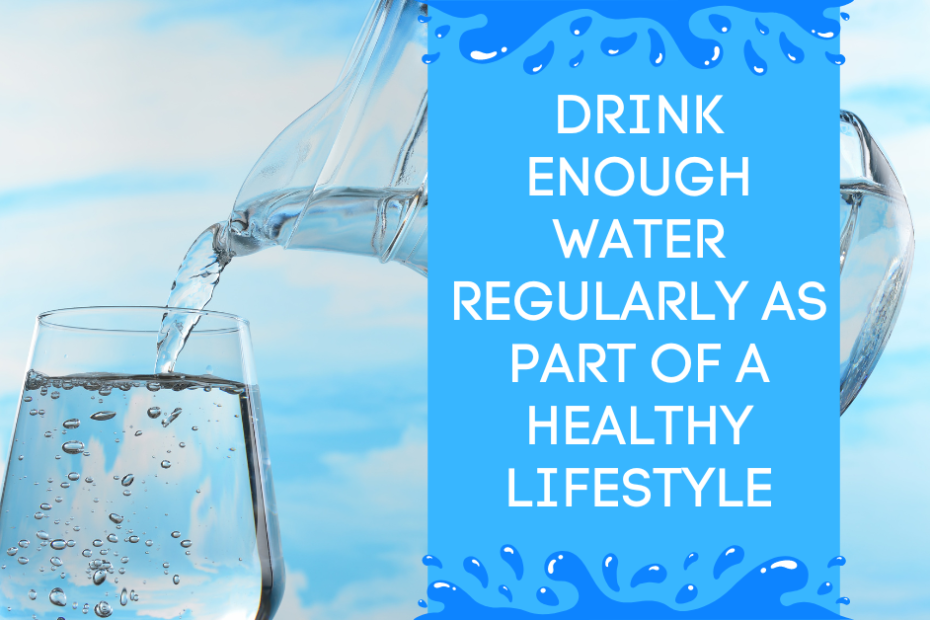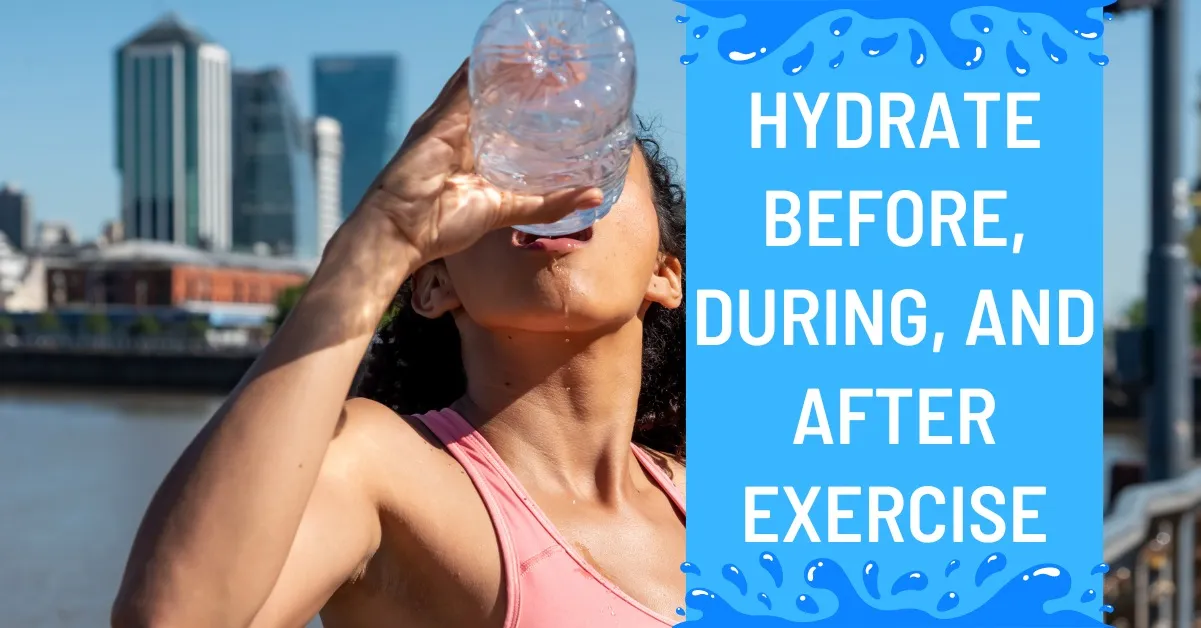Drink water. Water is essential to human life and is involved in nearly all bodily functions. Between approximately 55% and approximately 78% of your body is composed of water. Newborn babies account for about 78% of water, a year-old baby is 65%, adult men are about 60%, and adult women are about 55%. Your brain is made up of 73% water, and so is your heart. Your bones are 31% water, muscles and kidneys are 79%, and your skin is 64%.
How many water bottles should you drink daily? Drinking enough water each day is crucial for several reasons: it regulates body temperature, keeps joints lubricated, prevents infections, delivers essential nutrients to cells, and ensures organs function properly. Being well-hydrated also enhances sleep quality, cognitive function, and mood.
Every day, we lose body water, which must be replenished constantly. Water inputs should match water outputs. In this way, we ensure that all physiological systems are functioning correctly, strengthen our immune system, and prevent disease.
Water removes waste from the body, regulates body temperature, and transports vitamins, minerals, and other essential nutrients throughout the body.
What is hydration? hydration vs dehydration?
Dehydration is the absence of a sufficient amount of water in your body. The best way to beat dehydration is to drink before you get thirsty. If you’re thirsty, you’re already mildly dehydrated, and that can cause symptoms like headache, fatigue, dizziness, and more. Dehydration can contribute to life-threatening illnesses like heat stroke.
Symptoms of mild and moderate dehydration are dry mouth, muscle cramps, headache, thirst, dark yellow urine, and more. On the other hand, symptoms of severe dehydration include lack of energy, sleeplessness, sunken eyes and cheeks, and irritability.
Overhydration is the presence of an excessive amount of water in the body
How Much Water Should You Drink A Day?
Health experts commonly recommend drinking eight 8-ounce glasses, which equals about 2 liters, or half a gallon, of water daily. This is known as the 8×8 rule and is easy to remember.
However, some experts believe that you should sip water constantly throughout the day, even when you’re not thirsty.
Recommended Daily Water Intake:
Depending on your age and muscle mass, your body comprises 55-75% water.
The younger you are, the more water your body holds due to better hormones. And the more muscle you have, the more water your body holds.
Thus, you need to drink even MORE water if you don’t want to eliminate caffeine or alcohol.
How many bottles of water should you drink a day? So, drink more water, especially when you’re thirsty. Unfortunately, most people ignore thirst. And if they do, they’ll have a couple of sips of water and think that’s all they need.
Foods and beverages both contribute to total water intake. Nevertheless, the water from food is insufficient to maintain the water balance.
The ambient temperature plays a role, making it complicated to determine the moisture an individual needs to correct a problem. To balance the body and maintain mental equilibrium, it is recommended that we drink 1 to 1.5 liters of water daily, and even more when we are sick.
The recommended daily water intake varies based on age, gender, activity level, and overall health. Here’s a breakdown of general guidelines for daily water consumption across different age groups:
| Age Group | Recommended Daily Intake | Hydration Tips |
|---|---|---|
| Children (Ages 4–8) | 5 cups (1.2 liters) per day | Encourage consistent hydration throughout the day, especially during physical activities. Supports energy levels and growth. |
| Pre-teens and Teens (Ages 9–18) | 7–10 cups (1.6 to 2.4 liters) per day | Essential during growth spurts and increased activity. Promotes hormonal balance and cognitive development. |
| Adults (Ages 19–50) | 8–12 cups (2 to 3 liters) per day | Base needs vary depending on climate, health conditions, and activity level. Increase intake when exercising or in hot weather. |
| Older Adults (50+) | 8–10 cups (1.8 to 2.4 liters) per day | Thirst sensation decreases with age. Consistent hydration helps prevent kidney strain, supports brain function, and maintains skin health. |
Why Older Adults Are at Risk:
As we age, our bodies change, and so do our water needs. Several factors put older adults at risk of dehydration:
- Reduced Thirst: As we age, our thirst may decline, leading to a lack of water.
- Medications: Some medications can increase the risk of dehydration by causing more frequent urination.
- Chronic Conditions: Health issues like diabetes or kidney disease can affect how our bodies handle water.
Impact of Dehydration on Older Adults:
Dehydration can have severe consequences for older adults, including:
- Cognitive Decline: It may impair memory and focus.
- Joint Problems: Dehydrated joints can be more prone to pain.
- Skin Issues: Dry skin is more prevalent, resulting in discomfort.
Hydration and heart rate: Dehydration can affect your brain function, mood, and energy levels.
Daily Water Intake - Tracker
Drink Water to Lose Weight
Drinking plenty of water can help you lose weight, as it helps you feel full for longer. It also flushes out toxins from your body so that you won’t be hungry all day.
If you want to lose weight fast, drink one glass of water before meals instead of eating immediately.
Plain water should be THE choice for daily hydration as part of a healthy lifestyle.
Most people are unaware of the value of water. They walk around dehydrated throughout the day, which can cause fatigue and brain fog.
This brings up the following way to increase your energy levels: staying hydrated and drinking much more water. I get up every 60-90 minutes, move around, and drink several cups of water.
If you exercise, dehydration can also decrease your strength, stamina, and endurance.
During the day, you lose water through urine, sweat, and breathing. So, to stay hydrated, you need to drink enough water to compensate for this loss.
You also need to decrease or eliminate substances that cause dehydration, such as those with caffeine that have a diuretic effect – this means reducing or eliminating coffee, energy drinks, soda, and other similar products. This includes alcohol, too.
Share this:
- Click to share on Facebook (Opens in new window) Facebook
- Click to share on Pinterest (Opens in new window) Pinterest
- Click to share on LinkedIn (Opens in new window) LinkedIn
- Click to share on X (Opens in new window) X
- Click to share on Tumblr (Opens in new window) Tumblr
- Click to share on Bluesky (Opens in new window) Bluesky


Remember to take your water bottle with you. Thanks!
Subscribe to the channel and get the latest info
Staying well-hydrated is vital in maintaining stable blood sugar levels. So, remember to keep that water bottle handy.
hi, definitely going to make a conscious effort to drink more water and try some anti-inflammatory drinks
Thanks for sharing. I read many of your blog posts, cool, your blog is very good.
Remember, staying hydrated is essential for maintaining a healthy BMI! Drinking water can help you feel full and reduce the urge to snack, which can support your weight management goals.
Thanks for sharing. I read many of your blog posts, cool, your blog is very good.
I’ve found that starting my day with a short meditation session really helps me focus and reduce stress. What works best for you?